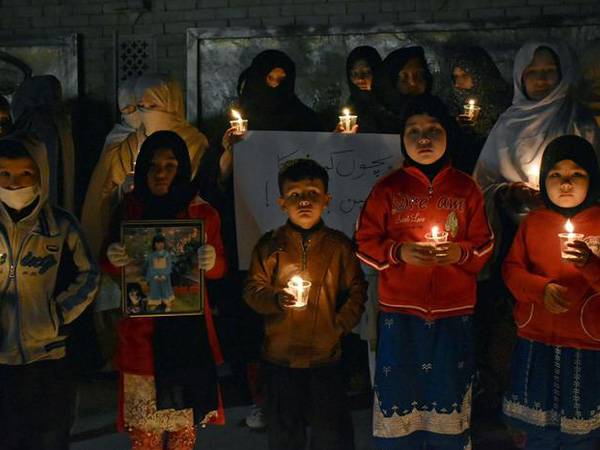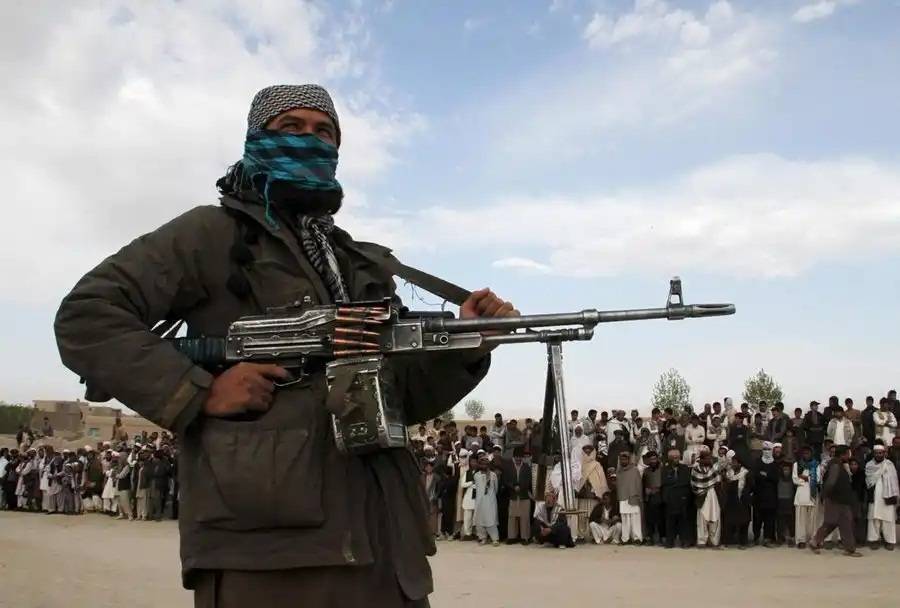Since the Taliban took over Afghanistan in mid-August last year, it rolled back women’s rights advances and media freedom revoking the efforts on gender equality…reports Asian Lite News
Taliban arrested women journalists and human rights activists, along with four men from the Hazara neighbourhood in West Kabul and intrusively disrupted a women’s press conference held in the Dasht-e-Barchi area on Thursday as per reports by Khaama Press.
The terrorist outfit disrupted the event and took the women human rights protestors to an undisclosed place, Khaama Press.
“Taliban initially encircled the premises before intrusively disrupting the press conference held by women, forcibly arresting them and taking their mobile phones,” according to a local media source who spoke on condition of anonymity.
Fawzia Koofi, the founder of the Movement of Change for Afghanistan political party, and one of the members of the Afghan Peace Negotiation Delegation stated that the “Taliban must be held accountable for the arbitrary arrest of women human rights activists in Afghanistan,” Khaama Press reported.
“This must end; women have the right to exercise their civic and social participation. More pressure will result in more resistance. Don’t push people to make hard choices,” Koofi added.
According to Reporters Without Borders, only 328 of the 547 media outlets that were active in Afghanistan prior to the Taliban’s takeover are still operating, with 219 print, visual, and aural outlets being shut down under the Taliban rule, reported Khaama Press.
The transfer of power from a west-supported government to the Taliban saw many changes in the way institutions were working for the past twenty years.
Since the Taliban took over Afghanistan in mid-August last year, it rolled back women’s rights advances and media freedom revoking the efforts on gender equality and freedom of speech in the country.

According to a report by the South Asian Media Solidarity Network (SAMSN) over 45 per cent of journalists have quit since the terrorist outfit assumed power.
The ever-increasing restrictions against media in Afghanistan have also drawn widespread criticism globally with the United Nations (UN) and the Committee to Protect Journalists (CPJ) decrying the arrests, demanding the Taliban stop harassing local journalists and stifling freedom of speech through continued detentions and threats.
The Taliban had promised women’s rights, media freedom, and amnesty for government officials in the group’s first news conference after the takeover in August. However, activists, former government employees, and journalists among others continue to face retribution.
Moreover, the violent persecution of the Afghan Shia Hazara goes back more than a century but has reached unprecedented levels in the last year under the Taliban.
The targeting of Hazara houses of worship, schools, and other public places has intensified since the Taliban took control last year. In the last year, the Islamic State of Khorasan has claimed responsibility for 13 attacks against Hazaras. Approximately 700 people have been killed or injured in these attacks. (ANI)

Leave a Reply